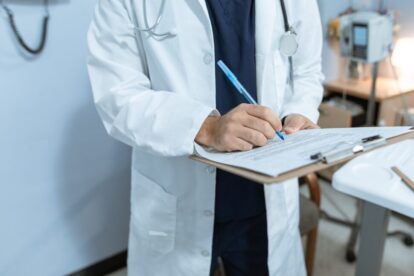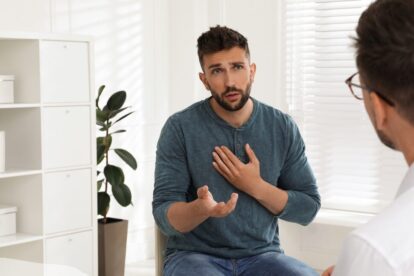The 7 Life-Changing Reasons Why Alcohol and Antidepressants Should Not Be Mixed

Depression is a debilitating mood disorder that is most effectively treated with a combination of medication and therapy. Antidepressants help many people manage their symptoms, but they come with risks and side effects. Drinking while on these medications poses a number of problems, from more severe side effects to addiction and even death. It is never recommended to use alcohol while on antidepressants. If you are having a hard time stopping drinking, seek professional support.
Antidepressants may work for you in managing depression. If you can find a medication that minimizes your symptoms and helps you enjoy life again, that’s great. But don’t let that give you a false sense of security. Don’t assume you can safely drink because your depression is currently under control. There are a lot of risks involved with drinking and taking antidepressants, and they can be life-changing.
Here are 7 reasons why alcohol and antidepressants should not be mixed:
1. Drinking Is Not a Healthy Habit for Managing Depression.
One of the most important things to understand about depression and alcohol is that drinking can actually worsen symptoms and increase the frequency and severity of depressed moods. Alcohol can trigger a relapse when you otherwise have depression under control. Whether you take antidepressants or not, drinking alcohol is a poor coping mechanism that only causes more harm.
Many people use alcohol or drugs to try to cope with negative feelings, bad moods, stress, and traumatic memories. This is risky, not just because drinking in this way can lead to addiction but also because it doesn’t deal with the root cause of those difficult emotions. Only professional treatment and healthy coping strategies can truly help process your feelings and moods and help you manage depression in the long run.
2. You May Develop a Co-Occurring Substance Use Disorder.
As someone who lives with depression, you have a greater risk of developing a substance use disorder. According to experts, the risk is double when compared to people without depression. What this means is that you may be able to drink without becoming addicted, but the risk of becoming addicted is significant.
Co-occurring mental illnesses, like depression, with alcohol or drug use disorders is common and problematic. While they are treatable, management for a dual diagnosis is much more challenging. If you drink and develop an addiction, it will become more difficult to control symptoms of depression, reduce the frequency of episodes, and stop or moderate drinking. You may need more frequent and long-term treatment if you have both an alcohol use disorder and depression.
3. You May Experience More and Worse Side Effects.
There are several classes of antidepressant drugs. All of them have the potential to cause side effects, some very uncomfortable or even severe. Drinking can enhance and worsen some of these. The most common class of antidepressants is selective serotonin reuptake inhibitors (SSRIs). While they cause fewer side effects than other types of antidepressants, SSRIs may cause:
- Headaches
- Insomnia
- Muscle aches and joint pain
- Nausea, diarrhea
- Sexual dysfunction
- Weight gain
- A reduced ability to clot blood
Certain other drugs interact badly with SSRIs, worsening side effects. Adding alcohol to this mix may increase the number of side effects you experience and also make them more severe. Some of the side effects are dangerous and detrimental to your health. Another risk is that as side effects increase you may be tempted to stop taking the antidepressant, which can lead to a relapse of symptoms.
4. Antidepressants and Alcohol Alter Your Thinking and Judgment.
Combining alcohol and antidepressants clouds your thinking and judgment, and that can be risky. Being drunk is a state of impairment that leads to poor judgment, bad decisions, and even self-destructive behaviors.
When combined with antidepressants, these effects of drinking become heightened. In other words, you may get drunker faster, and with less alcohol than usual. The results can be dangerous if you make poor decisions while combining these two substances.
5. The Combination Increases Drowsiness.
Another effect of excessive drinking is drowsiness. This is also enhanced by combining antidepressants with alcohol. Both substances have a sedative effect, slowing down the central nervous system. They make you feel sleepy and drowsy and cause poor coordination. The concentrated effect of both substances can lead to accidents and injuries.
6. Mixing MAOIs With Alcohol Puts You at Risk for Dangerously High Blood Pressure.
Monoamine oxidase inhibitors, or MAOIs, are antidepressants not commonly used. They potentially cause severe side effects and may even trigger deadly interactions with certain foods and other drugs. You are not likely to be prescribed an MAOI unless other antidepressants and treatments have not worked for you and your doctor believes the benefits outweigh the risks.
If you do take an MAOI, drinking alcohol is very risky. MAOIs increase levels of an amino acid, tyramine, in the body. Too much tyramine can cause dangerous spikes in blood pressure. Any food or drink that also increases tyramine makes this problem worse and can even be fatal. These include alcohol. You should never drink any amount of alcohol while on an MAOI.
7. Drinking While on Antidepressants Can Be Fatal.
This is the most important reason of all to just avoid drinking alcohol while using antidepressants. The high blood pressure caused by drinking on MAOIs can potentially be fatal. Increased side effects or intensified impairment can cause fatal health problems or alcohol poisoning. Alcohol may also increase thoughts of suicide.
Depression already puts you at risk of suicide. Alcohol only makes depression worse, so your risk of having suicidal thoughts or engaging in suicidal behaviors increases. You could actually die from this combination. Drinking while depressed is not worth that risk.
Instead of Turning to Alcohol, Seek More Treatment
If you are on antidepressants, you have already sought treatment. But, if you are turning to drinking or thinking about it, this may be a sign that you need more treatment. Residential treatment for depression can also help you manage a substance use disorder or problematic drinking habits.
Good treatment will also give you better, more effective and productive ways to manage depression symptoms. Antidepressants can be useful, but they are not a fix for depression. You still need therapy, healthy coping strategies, a healthy lifestyle, and social support in order to live well with this chronic mental illness.
Bottom line: alcohol and antidepressants should not be mixed.
Drinking may feel good in the moment, but it only makes the problem of depression worse, especially when you are also on medications. Don’t use this as a quick fix. Instead, seek the support of dedicated professionals who know how to help. Treatment for depression is never truly over, and going back for a stay in a residence can provide many benefits, including helping you change drinking behaviors.
Bridges to Recovery offers comprehensive treatment for people struggling with depression, bipolar disorder, anxiety, complicated grief, and other mental health issues. Contact us to learn more about our renowned Los Angeles programs and how we can help you or your loved one start on the path to lasting wellness.






